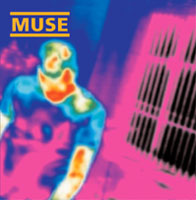Stockholm Syndrome (song)
| Muse song | |
|---|---|
| Name | Stockholm Syndrome |
| Album/single |
|
| Length | 4:58, 4:06 (radio edit) |
| Alternative titles | De-tuned Riff, New D |
| First live performance | 29th August 2003 (full), 2nd November 2001 (riff) |
| Latest live performance | - |
| Recorded | Grouse Lodge, 2003 |
| Writer/composer | Matthew Bellamy |
| Producer | Rich Costey |
| Chart position | 31 (GB Download) |
<flashmp3>http://www.musewiki.org/images/StockholmSyndrome.mp3%7Crightbg=0xDDEEFF%7Cleftbg=0xDDEEFF%7Cbg=0xFFFFFF</flashmp3>
| Song Nav | ||||
|---|---|---|---|---|
| Sing for Absolution | < | Stockholm Syndrome | > | Falling Away with You |
| Album Nav | ||||
|---|---|---|---|---|
| Hullabaloo (2002) | < | Absolution (2003) | > | Black Holes and Revelations (2006) |
Description
According to Dom and Matt initially, the song was going to be a quiet song and sweet with a gradual rise due Rich Costey ideas and that "There was something truly epic present when it was really quiet at the beginning" and then "It was changed just before recording, originally it was just a strange and quiet riff" but then it was reworked with a huge and monstrous chorus riff and end that gives it a really heavy effect.[1]
While this song was written on piano by Matthew Bellamy, it was recorded on both guitar and synths. Matt then mixed both of the sounds together. The main riff was inspired by System of a Down.[2] Standard set closer throughout the Absolution tour and sometimes during the Black Holes and Revelations tour. Usually multiple riffs are played after the song. An example of this is the L.A Staples Centre Gig in which more than eight riffs were played after Stockholm Syndrome.
Dom explains that: 'Stockholm Syndrome', concerns a medical complaint whereby someone falls in love with the person that has kidnapped them; "In 1973 some bank robbers went to rob a bank and ended up taking six people hostage and it went on Tv, But the hostages ended up defending the captives in cout and one of the hostages got married to one of the captors"[3]
Additional information
The syndrome is named after the Norrmalmstorg robbery of Kreditbanken at Norrmalmstorg, Stockholm in which the bank robbers held bank employees hostage from August 23 to August 28, 1973. In this case, the victims became emotionally attached to, and even defended, their captors after they were freed from their six-day ordeal. The term was coined by the criminologist and psychologist Nils Bejerot, who assisted the police during the robbery, and referred to the syndrome in a news broadcast. The majority of the hostages were okay, but one of them committed suicide and another changed his name to that of one of his captors and disappeared.
This song was first written by Matt on the piano, before being played on the guitar.
The song was added to Guitar Hero 3 on 8th May 2008 along with Supermassive Black Hole and Exo-Politics as part of a Muse track pack.
A cover of this song is featured on the String Quartet Tribute to Muse.
Mike Portnoy of Dream Theater covered the intro on his drumming focused ‘‘In Constant Motion‘‘ DVD (watch)
Played backwards
<flashmp3>http://www.musewiki.org/images/Inverted_Stockholm_Syndrome_Refrain.mp3%7Crightbg=0xDDEEFF%7Cleftbg=0xDDEEFF%7Cbg=0xFFFFFF</flashmp3>
When the chorus is played backwards, it sounds something like "You can't see me, we sneak off. I lost to love. Please ... save the night wind and high above, I lost to love. Sing, save". Allegedly.
Lyrics
I won't stand in your way
Let your hatred grow And she'll scream and she'll shout and she'll pray And she had a name, yeah she had a name
I won't hold you back Let your anger rise And we'll fly and we'll fall and we'll burn No one will recall, no one will recall
This is the last time I'll abandon you And this is The last time I'll forget you I wish I could
Look to the stars Let hope burn in your eyes And we'll love and we'll hate and we'll die All to no avail, all to no avail
This is the last time I'll abandon you And this is The last time I'll forget you I wish I could
This is the last time I'll abandon you And this is The last time I'll forget you I wish I could I wish I could
References
- ↑ Rock Mag. (2003-09). "Apocalypse Now" September 2003. Rock Mag. [verify]
- ↑ Total Guitar - Matt Bellamy tells us the amazing story behind Absolution. September/2003]
- ↑ Mark Beaumont. (2013-09-13). It's the end of the world as we know it. Retrieved from microcuts.net.
